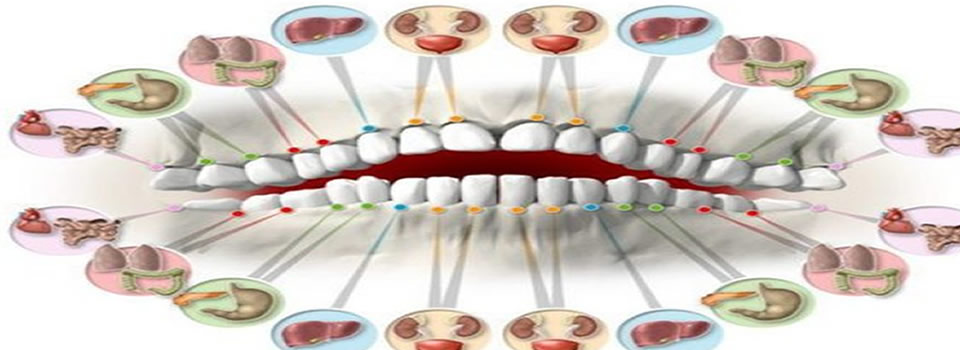Each Tooth Is Associated With Organ In The Body!
 Even the slightest damage to the tooth is a problem in an equivalent organ in the body. The upper and lower incisors (first and second) reflect the state of the kidneys, bladder,ears and canine teeth – of the liver and gall bladder.
Even the slightest damage to the tooth is a problem in an equivalent organ in the body. The upper and lower incisors (first and second) reflect the state of the kidneys, bladder,ears and canine teeth – of the liver and gall bladder.
Information about the lung and colon carry a small root 4 and 5, for the stomach, spleen and pancreas – the big root 6 and 7, and so-called “Wisdom teeth” – may predict the state of the heart and small intestine.
Of course, not always internal diseases are accompanied by damage to the teeth, which are found in a review of the dentist.
Sometimes the patient complains of discomfort in the perfectly healthy in appearance tooth, and often ached on the places where teeth have long been removed. This is the so called. Phantom pain – the most accurate signal that the body submitted.

This happens because signals from diseased organs enter the reflex area of a corresponding tooth. If you know about these relationships can easily detect the diseased organ.
Between internal organs and the mouth there is a close connection. Diseased teeth often cause headaches. If the inflammatory process is in the root of the tooth, the pain may be in the parietal region.
The lesions of maxillary incisor teeth cause pain in the frontal temporal area and diseased canines.
Diseases of the teeth of the lower jaw may occur with pain “spilled” character.
And there is no other salvation from migraine, unless examination by dentist.
Pain in the first and second incisor (upper and lower) testify to chronic pyelonephritis, cystitis and otitis. If you worry first incisor, may be thinking about tonsillitis, osteochondrosis, prostatitis, disability to the hip joint. In cholecystitis or hepatitis canine teeth signaled a constant dull pain.
For pains in the fourth and fifth teeth root, the reasons may be chronic pneumonia, colitis, long flowing dysbacteriosis, allergic reaction (asthma, rhinosinusitis, respiratory allergy).
If have the pain in fourth teeth, top and bottom, the patient probably has the weakness of the connecting device (knee joints, shoulder, elbow, beam-ring), it may be suffering from inflammatory processes with chronic nature of the type of arthritis, diseases of the colon – polyposis , diverticulosis.
The sixth and seventh teeth ache in chronic gastritis, gastric ulcer, duodenal ulcer, long flowing anemia, chronic pancreatitis.
The sixth upper teeth “call” in sinusitis tonsillitis, diseases of the pharynx in mastopathy, tumors in the thyroid gland, inflammation of the spleen and ovaries. And six lower teeth give a signal that there is a problem with the arteries, atherosclerosis.
The following seven lower teeth, which are responsible for problems with veins (varicosis, hemorrhoids), lung (chronic pneumonia, bronchitis, bronchial asthma), signaled of polyps in the colon.
If the “Wisdom teeth” do not give you resting better, not delay the review in cardiology. Coronary heart disease, congenital defect and other cardiac diseases are areas of the sages. Tartar can direct attention to the doctor endocrine system to gastric ulcer disease.
There is an opinion that the appearance of the teeth can be judged not only for human health, but also for the character.
Equal teeth are a sign of eloquence of the holder.
Deep thinking people have teeth with an uneven height.
The long teeth talking about greed and anger.
Teeth passionate forward, talking about stinginess.
Small, sharp and rare – evidence of deceit and cunning.
If a person has big gaps between teeth, then, its character is purposeless.
People with a distance between the upper incisors have always thought it jolly and frivolous.
Holders of large healthy teeth are generally good and brave people.
To all these signs should be treated with a certain dose of skepticism. Nowadays most of us are “decorated” with beautiful snow-white teeth that can not tell us anything about the character, but demonstrate mastery of dental technicians.
Dentistry is not cosmetics. The dentist is not only to fix your teeth and ignored the possible cause of toothache.